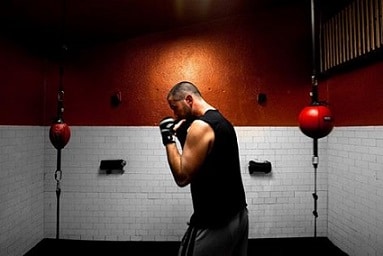 Adequate hydration is vital for the body to operate at its most effective. Drinking too little water can impair its function, but drinking an excess of water is not good either. It is important that you drink enough water daily in order to ensure that your body remains fully hydrated.
Adequate hydration is vital for the body to operate at its most effective. Drinking too little water can impair its function, but drinking an excess of water is not good either. It is important that you drink enough water daily in order to ensure that your body remains fully hydrated.
The old idea that everyone should drink 8 glasses of water a day is outdated; how much water you should drink depends on your personal body chemistry, weight, geological area, diet, and the amount of exercise that you undertake.
When one exercises, one’s body loses fluid too quickly for the brain to react in time; this means that you could become highly dehydrated long before you actually realise it. It takes a whole hour after drinking water for it to travel from your stomach to your muscles. This makes it imperative that you ensure that you drink water about an hour before exercising in order to hydrate your body in preparation for the fluids that you will lose during exercise.
A study at the Maastricht University in the Netherlands found that women lose more fluids in the form of sweating than men during exercise. It is important that you adjust your water intake when exercising; adding 340ml of water to your regular daily intake per 30 minutes of exercise should keep you hydrated.
Signs You’re Dehydrated during a Workout
Drinking insufficient water can play havoc with your regular exercise routine; this may stop you from training as long or as hard as you would like. In order to prevent this you must drink water to ensure hydration.
Here are three common signs that you are dehydrated:
- Fatigue: Feeling tired and sluggish prior to a workout is a sure sign that you are dehydrated. Drink water to rehydrate and if you are going to be exercising for an extended period of time, drink water throughout too.
- Fast Pulse Rate:It is important to use a heart-rate monitor when working out in order to understand how your body is reacting to the exercise. If your heart rate is faster than normal, it could be due to dehydration. Drink water to rehydrate and monitor your pulse-rate. If it does not slow down then it could be fast for another reason and you should get it checked; if it returns to normal after drinking water you were definitely dehydrated.
- Cramping: Muscles are 79% water, so when you are dehydrated In dehydration, electrolyte abnormalities may occur, including the loss of potassium, causing muscle weakness and cramping. Drink around 60ml of water for every 10kgs of body weight an hour or two before exercising to stave off dehydration and cramping.
Drink water regularly and you will always be fully hydrated, and should not need much change in your water drinking habits when exercising, but drink at least a glass of water an hour before working out just to be on the safe side.
Source:
Shape
Water coolers London and water dispensers from Living-Water.





